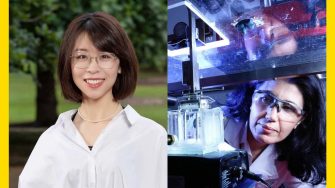How we can break the bias towards female Engineers in Minerals and Energy Resources
Dr. Yu Jing and Assistant Professor Seher Ata explain their roles within the school, their experiences being female engineers, how to forge women’s equality in the engineering industry and how to encourage more women to fill in the talent gap.

